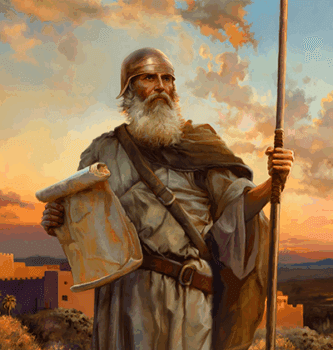"If you believe, you will receive whatever you ask for in prayer" (Matthew 21:22, NIV).
Tag someone in need of prayer, and kindly share your prayer requests here:
https://wkf.ms/3DBuapQ Source: https://www.youtube.com/watch?v=71tC65Oz5as
Godpods Become Teachers to Villagers
Mr. Kambi shares how God is working through Adventist World Radio in his community. What began under a tree without books or chairs is now a growing classroom filled with learning, joy and the Word of God. Through AWR Godpods, villagers who once could not write a single letter are now reading, writing and even beginning to understand Swahili. Support the sharing of more Godpods to unreached people groups. Visit https://awr.is/godpods. #AWR360 #BroadcastToBaptism Source: https://www.youtube.com/shorts/kL9f-xorJw0
A Hard Job and a Life-Changing Encounter
What can one man do? Marlene’s life seemed locked in a cycle of hardship, with long hours and little rest, but in the midst of it all, God placed Brian in her path. He was the man whose help and advice would completely change her future. Through his simple introduction to Nuevo Tiempo Radio, Marlene found a new desire to live. Learn more about Nuevo Tiempo Radio at https://awr.org. Watch Marlene’s full story here: https://youtube.com/watch?v=E9wQwYAs1Ro #AWR360 #BroadcastToBaptism Source: https://www.youtube.com/shorts/tUHEw0Nnnww
Loma Linda University Children’s Hospital Recognized as a Best Children’s Hospital for Fifth Consecutive Year
Loma Linda University Children’s Hospital has been recognized as a Best Children’s Hospital by U.S. News & World Report for 2025-2026. The hospital is ranked 8th in California, United States, and 9th in the Pacific Region in U.S. News’ 2025-2026 … Source: https://adventist.news/news/loma-linda-university-children’s-hospital-recognized-as-a-best-children’s-hospital-for-fifth-consecutive-year
4: The Conflict Behind All Conflicts — It Is Written — Discussions with the Author

Join It Is Written Sabbath School host Eric Flickinger and this quarter’s author, Dr. Barna Magyarosi, as they provide additional insights into this week’s Sabbath School lesson.”
 (0)
(0)4: The Conflict Behind All Conflicts — Hope Sabbath School Video Discussion
View an in-depth discussion of The Conflict Behind All Conflicts in the Hope Sabbath School class led by Pastor Derek Morris.
Click on the image below to view the video:
With thanks to Hope Channel – Television that will change your life.
 (0)
(0)Giovanni 2:24-25 – Apri la porta del tuo cuore
"Ma Gesù non si fidava di loro, perché conosceva tutti, e perché non aveva bisogno della testimonianza di nessuno sull'uomo, poiché egli stesso conosceva quello che era nell'uomo”. 📖 Giovanni 2:24-25
—
💌 Apri la porta del tuo cuore
🗣 Speaker: Alessia Zagara Source: https://www.youtube.com/watch?v=74HqttuaW60
4: The Conflict Behind All Conflicts — Singing with Inspiration
As we work our way through the book of Joshua this quarter, we will see that he is ready to
Fight The Good Fight – Hymn 613 and to move forward into the Promised Land. We may still use last quarter’s theme hymn as this will pop up throughout this quarter as well:
Hymn 620 – On Jordan’s Stormy Banks I Stand. These two hymns will resound throughout the quarter.
Just as all the people of Israel were marching to their Promised Land, so we are all
Marching To Zion – Hymn 422 in Sunday’s study time. With all that is happening in the world today may we continue to sing
Onward, Christan Soldiers! – Hymn 612 as we ask God’s help to fight our battles for and with us.
There are so many uses of the words, fight, conflict, war, and battles in this week’s studies. Our ultimate goal should be to
Stand Up! Stand Up For Jesus! – Hymn 618 (Wednesday) as we go through this world’s last times, just as the Israelites were to stand up for our Gracious God in Heaven. With this all happening, we pray that “The Lord Will Fight for You”, and all of us continually until Jesus comes. Meantime we are to
Fight The Good Fight – Hymn 613 with God on our side. We are reminded that “whenever Israel had sufficient trust in God, they did not need to fight”, therefore can we say
Only Trust Him – Hymn 279? This was the downfall of Israel on Thursday when they lacked trust in God against Amalek.
God kept calling the people back to His plans for them (Thursday) and to trust Him, just as we have Jesus calling us today in
Hymn 285 – Jesus Calls Us.
Please continue to search the scriptures this week to be blessed, and to bless others.
To learn unknown hymns, you will find the accompaniment music for each one at: https://sdahymnals.com/Hymnal
Another great resource is for when there is a hymn you wish to sing but can’t find it in your hymnal. Go to https://www.sdahymnal.org/Search and in the search bar type a special word in that is in the hymn. I am sure you will be amazed at the help you will be given.
2 Timothy 2:15 KJV – “Study to shew thyself approved unto God, a workman that needeth not to be ashamed, rightly dividing the word of truth.”
 (1)
(1)4: The Conflict Behind All Conflicts – Teaching Plan
Key Thought: Israel’s wars reflect the cosmic conflict between good and evil and anticipate God’s end-time judgment of present history on earth.
God’s end-time judgment of present history on earth.
October 25, 2025
1. Have a volunteer read Revelation 12:7-9, Isaiah 12:12-14.
- Ask class members to share a short thought on what the most important point is in this passage.
- What do we know about the conflict between God and Satan?
- Personal Application: In what ways do we see in the world around us and in our lives, the reality of the conflict between good and evil? Share your thoughts.
- Case Study: One of your relatives states, “Why did God command Israel to go to war? I thought the war was a spiritual one, but here it seems to be literal and physical as well?” How would you respond to your relative?
2. Have a volunteer read Joshua 5:13-15, Nehemiah 9:6, Isaiah 37:16.
- Ask class members to share a thought on what the most important point in this text is.
- What does this say about the background of Canaan’s conquest?
- Personal Application: What comfort can we draw from knowing that the commander of the Lord’s army is working to defend His people? Share your thoughts.
- Case Study: One of your friends states, “How do we know that the commander of the Lord’s army is Jesus? I thought it was Michael, the Archangel, that was the head of the angels, the Lord’s army?” How would you respond to your friend?
3. Have a volunteer read Exodus 14:13,14,25.
- Ask class members to share a short thought on what the most important point in this text is.
- What was God’s original plan concerning Israel’s involvement in warfare?
- Personal Application: If complaining against God caused Israel’s enemies to attack them, what does that tell us about us today when we complain against God? Share your thoughts.
- Case Study: One of your neighbors states: “Is it complaining against God if we are not satisfied or happy with our church leadership – whether at the General Conference or local conference or our local church?” How would you respond to your neighbor?
4. Have a volunteer read Joshua 6:15-20. Exodus 17:7-13.
- Ask class members to share a thought on what the most important point in this text is.
- What are the similarities and differences in these two narratives?
- Personal Application: Many times we want to see who’s on our side in a disagreement, but how can we stand still and wait for the Lord to fight for us in our spiritual battles? Share your thoughts.
- Case Study: Think of one person who needs to hear a message from this week’s lesson. Tell the class what you plan to do this week to share with them.
(“Truth that is not lived, that is not imparted, loses its life-giving power, its healing virtue. Its blessings can be retained only as it is shared.” Ministry of Healing, p. 148)
 (0)
(0)If Ellen White was a prophet, was she infallible?

20 October 2025 | Dear Aunt Sevvy: Just how fallible are prophets? Ellen White cautioned us not to be duped, yet she took two of her sons to a phrenologist for readings of their skulls. And despite her counsel on family dynamics, she and her husband were separated and there is evidence that there was […] Source: https://atoday.org/since-ellen-white-was-a-prophet-aunty-was-she-infallible/
- « Previous Page
- 1
- …
- 174
- 175
- 176
- 177
- 178
- …
- 4850
- Next Page »

